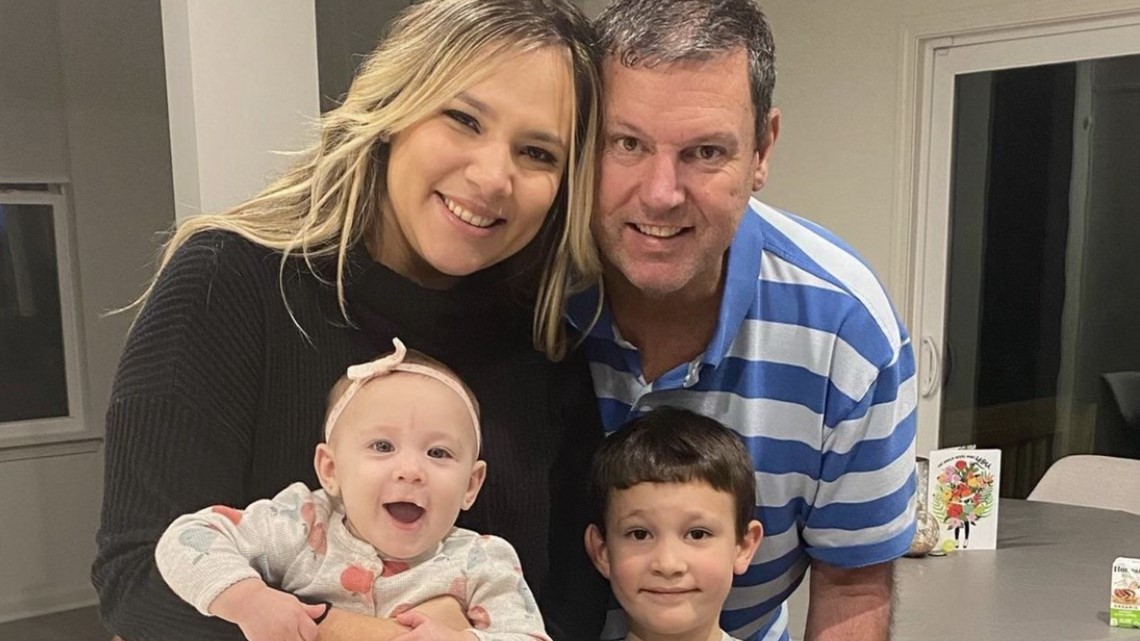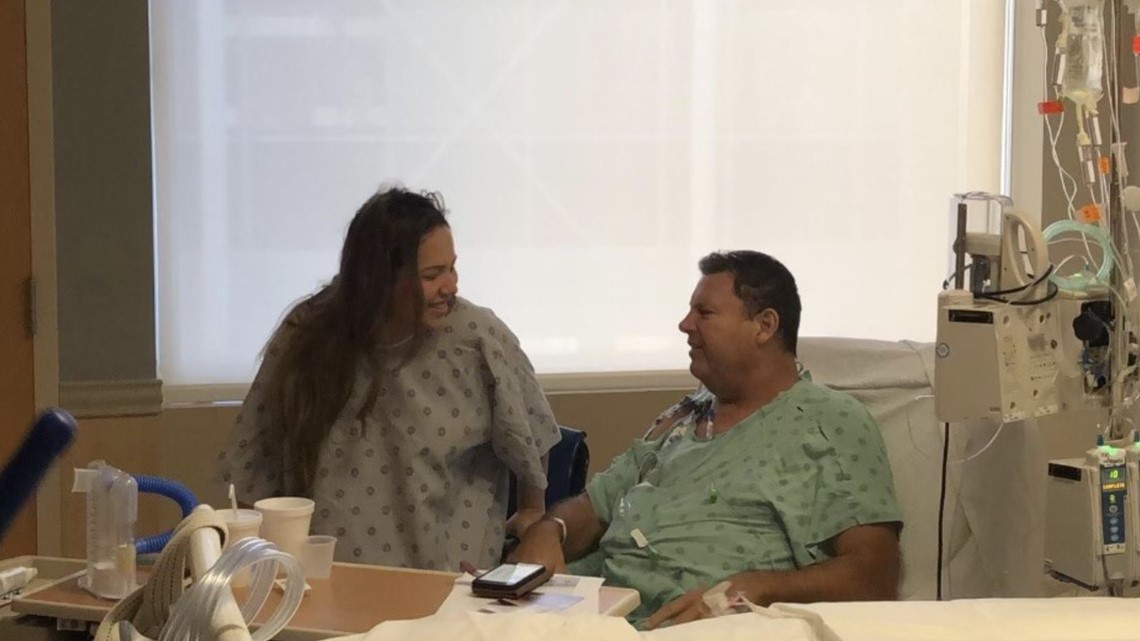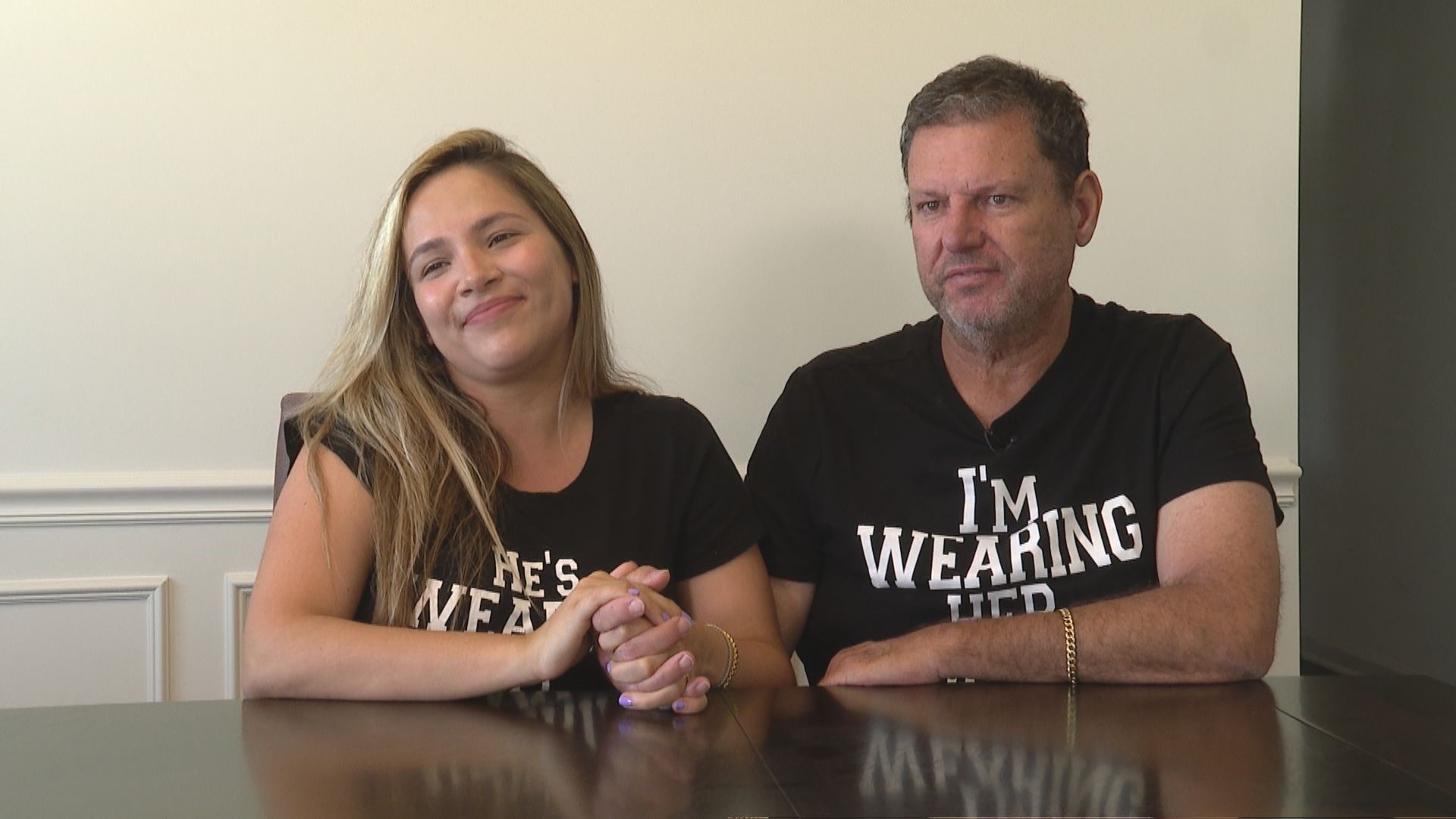ZIONSVILLE, Ind. — A Zionsville woman gave her husband the ultimate gift of a kidney, saving his life and allowing their family to grow.
"We're definitely in it for life," said Frederic Manzanares.
At 14 months old, Samantha Manzanares keeps her parents, Valentina Nadales and Manzanares, on their toes. Throughout Samantha's life, both her parents have been healthy and happy.
But years earlier, Manzanares found himself dealing with worsening kidney functionality and a cough he couldn't shake, so he went to the doctor.
"They found out I had pneumonia and also then, during verification, they found out I had cancer on one of my kidneys," Manzanares said. "So they had to remove the right kidney, which left me with only with one kidney at 11 percent."
For months, in search of a kidney donor that could help, his family - including his wife - got tested.
"And I remember I sent it over in a little text to you, you remember that? Sent it with a picture that said 'yes, we are a match,'" said Nadales.
In September 2019, they went into the hospital together, ready for her kidney to become his.


"Both of us went to the hospital, they put us into our rooms, put us into our gowns. And unfortunately, they made her walk in first, so difficult," Manzanares said, holding his wife's hand.
But waking up from surgery, the couple found themselves closer and more connected than ever.
"That feeling is amazing," Nadales said. "So no regrets, none. Nothing compares to having a healthy husband."
With their son Sebastian at their side, they hoped to grow their family.


Dr. Asif Sharfuddin, IU Health medical director for the kidney and pancreas transplantation program, said while it's safe to get pregnant after a kidney donation, most experts recommend waiting minimum 6 months - and preferably 1 year after donation - so that the body can adapt to a single-kidney environment before being put through the physiological stress of pregnancy.
"During pregnancy, there are changes in body fluid volume, and even in the general population, there is a small risk of pre-eclampsia, gestational hypertension, which, if severe, can lead to necessitating early delivery. Data has shown that the risks of pregnancy complications in healthy donors are low, although the risk for pregnancy complications are slightly higher than the general population. The chance of conception after donation is not altered by donation," Dr. Sharfuddin said in a statement to 13News.
Nadales and Manzanares say they worried about their chances of conception after the transplant.
"We were a little bit," Nadales said.
"There was a little of that, we figured we might not have anybody else, we might be with Sebastian only. But in this case, we were lucky enough that she did get pregnant with Samantha," Manzanares said.
With Samantha and Sebastian keeping them busy, both Nadales and Manzanares say their family of four feels complete. And with everyone in the family now finally healthy and happy, Manzanares said this gift his wife has given him is one he can never thank her for enough.
"It's nothing you can pay back, too, it's difficult. What can you do, what can you say, other than thank you and that I love her," he said.
According to IU Health, more than 100,000 people across the country are currently on a waiting list for a lifesaving organ transplant. The majority on the list are in need of kidney transplant, followed by liver, pancreas, heart, and lung.
For more information on organ donation including how you can sign up, visit the IU Health website.
There's additional information about the Indiana Donor Network here.
What other people are reading:

